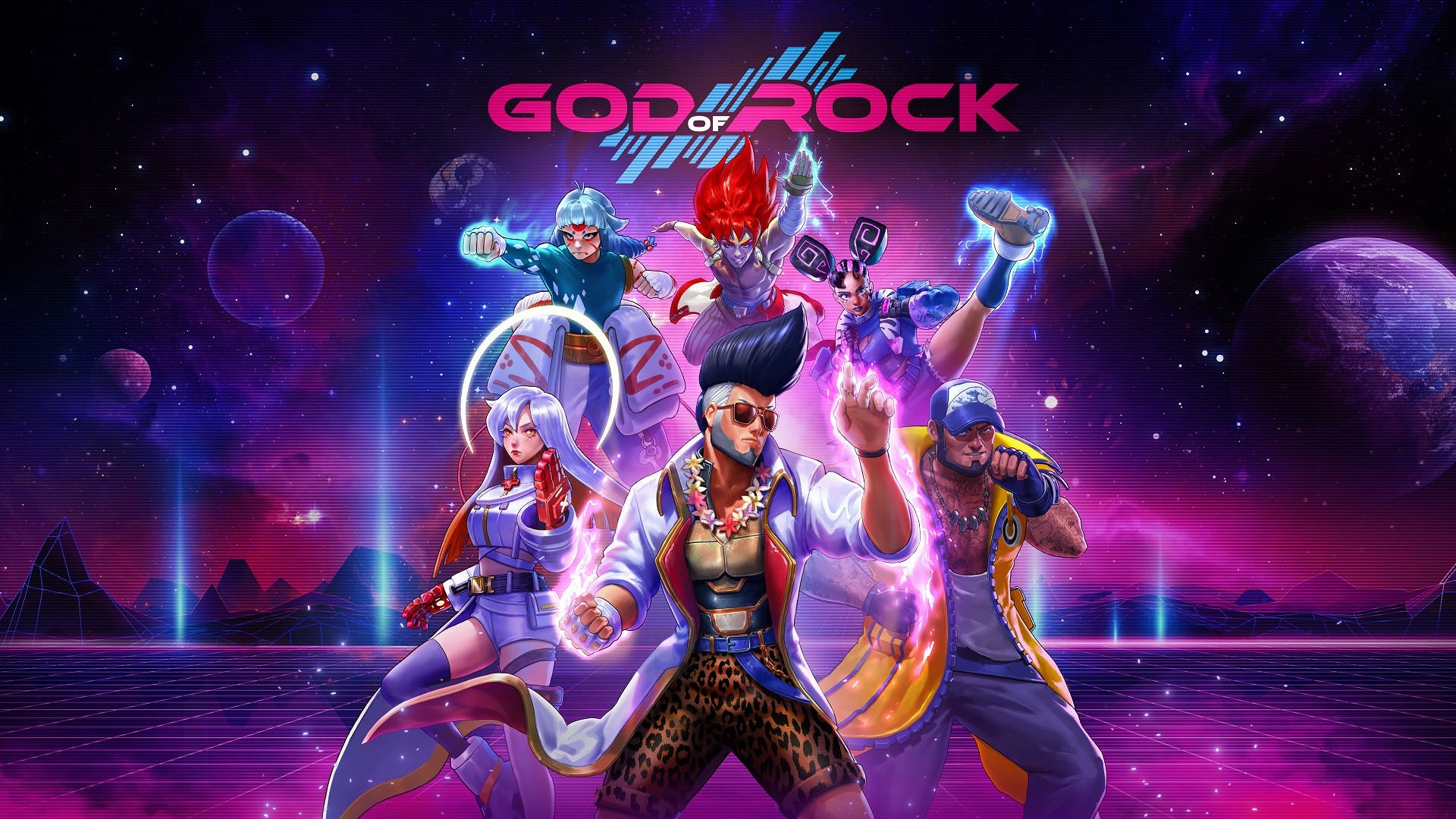In gaming, few genres seem at odds with one another and feel like they’re strangely similar, one of those pairs being fighting and rhythm games. They stand at opposite ends of the spectrum, requiring distinct approaches for success. Rhythm games demand mechanical precision, while fighting games necessitate a profound comprehension of button inputs and your opponent’s arsenal of moves. But because both key into specific timing, one could easily see how these two genres could find harmony with one another, but alas, in the case of God of Rock, their integration with often results in a visual mess.
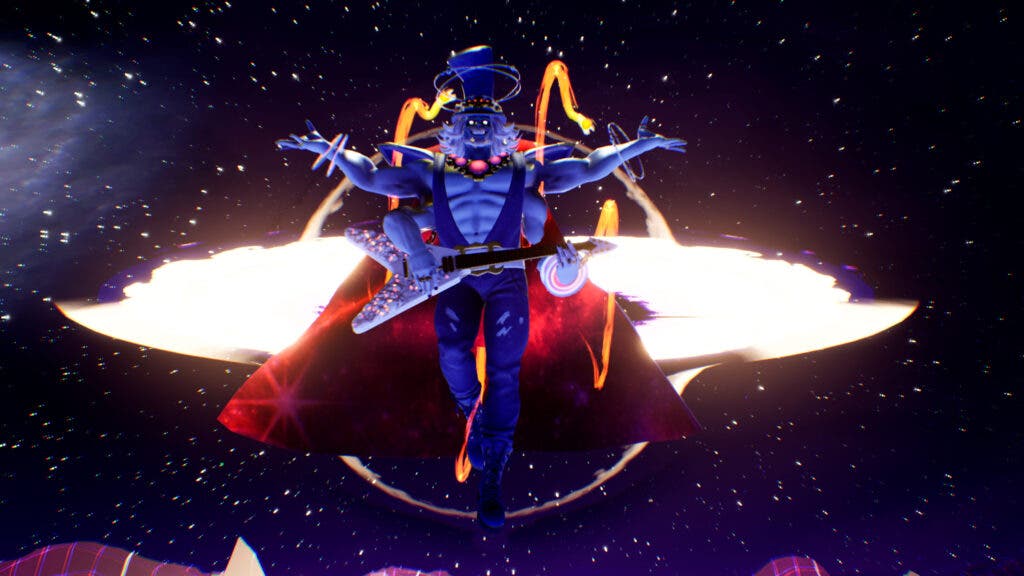
This is unfortunate, especially for someone like me who holds rhythm games in high regard. The prospect of a game that seamlessly marries these two genres sounded like an exciting combination. A combination that seemed like music to my ears. However, instead of conventional move lists and dedicated attack buttons, God of Rock’s battles unfold through scrolling note charts at the bottom of the screen and special moves that seem to hold more weight than the actual rhythm action. As you hit the right notes, you’re attacking the opponent, yet, striking the same notes as my opponent leads to mutual blocking. This is where Modus Studios incorporates elements from fighting games to spice up the rhythm aspect, special attacks.
The game’s real issues, though, lie in how the fighting game elements disrupt the flow of the rhythm gameplay. The special attacks are delivered through simple fighting game inputs, like back-to-front or quarter circles. Each character possesses three supers and an ultra move. These abilities range from bombarding the opponent with a flurry of random notes to altering the note speed or healing when on the receiving end of a beating. By doing these, you are sacrificing any of the actual rhythm gameplay, as you have to stop your inputs to enter the combination. The specials are also on a cool down. But not on a cool-down based on how many accurate notes you hit, just a timed one. So, in essence, if you time your attacks right, there is plenty of wiggle room where you only need a few accurate notes to win a match still. I often resorted to deliberately dropping note combos in an attempt to unleash a super attack. I would have liked to have seen a better implementation of this special move mechanic where notes that are hit on the note highway hold more weight or something. Maybe hitting accurate notes fills the cool down rather than being time-based. As it stands right now, the actual rhythm part of the game feels unimportant.
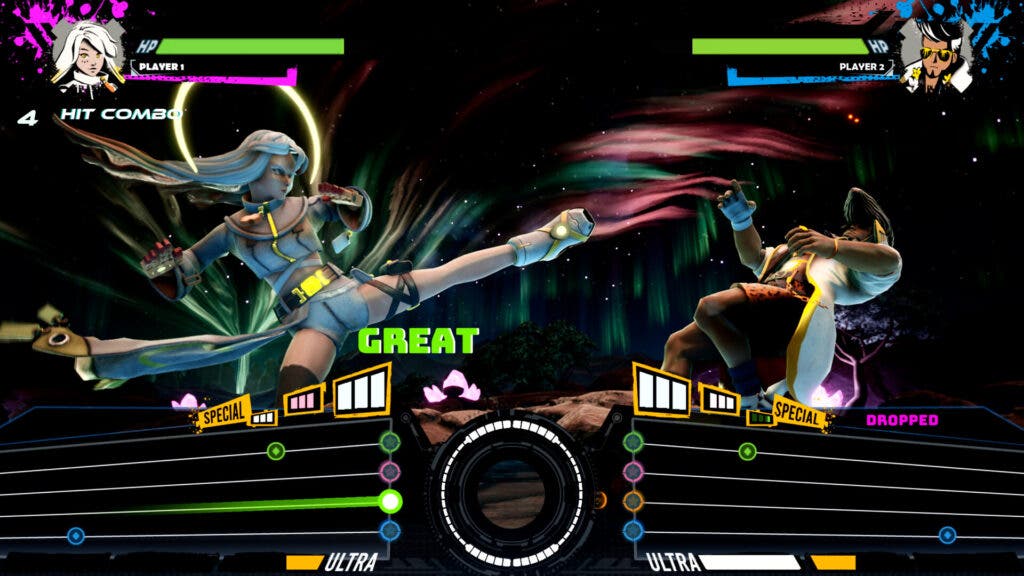
Furthermore, including reversals further contributes to the visual chaos and exacerbates the difficulty of reading and reacting to in-game cues. A circular indicator in the center of the screen illuminates with a specific color when the opponent prepares to unleash a super move. You must quickly respond with a higher-level super move to counter their attack, but this proved nearly impossible for me. Diverting my attention from the notes to monitor the indicator, decipher its color, and react accordingly was too much. I also found it cumbersome to remember which attack input for my character was the stronger attack and which ones were the weaker ones.
To compound matters, certain UI choices make reading notes in God of Rock an arduous task. The horizontal note charts, which demand attention to four inputs, are notoriously hard to read. Moreover, the game’s limited options for rebinding controls further hampered my ability to decipher the note charts. On the Playstation, shape inputs weren’t even the correct color for the corresponding buttons on the controller. This made matters more difficult than it should have been. You can also utilize the directional arrows, but they do not serve any graphical indication on the screen like the face buttons. You just have to know that they correspond to the exact face button locations.
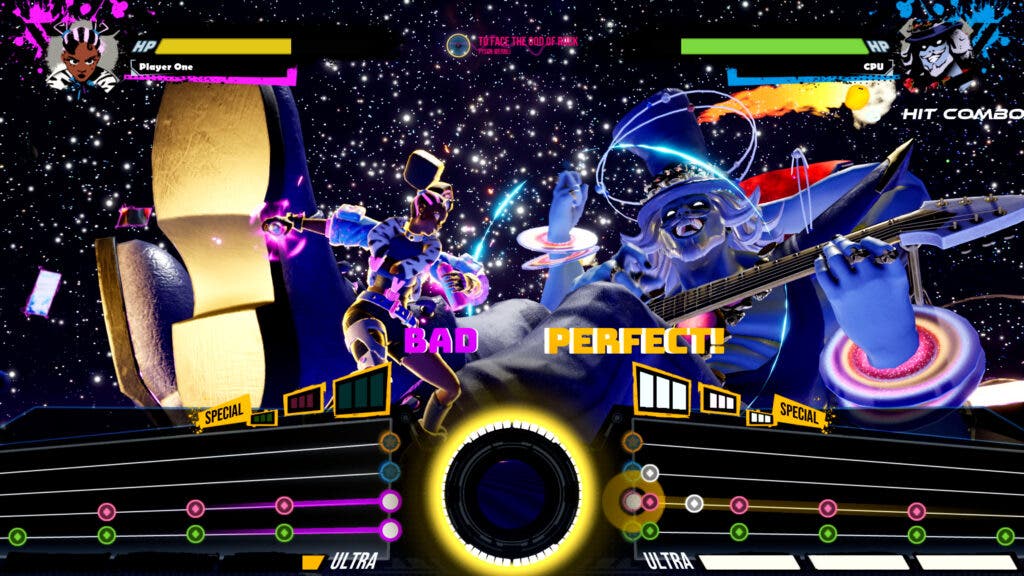
I would have liked to have seen more customization on the UI so that players could choose half the inputs to be face buttons and the other half could be shown as directional arrows. There were additional minor gripes I had with the UI as well. The health bar is a little too far from the note highway, making it difficult to glance at and gauge my and my opponent’s health. While the background fighting animations were visually striking, you’re not even paying attention to anything on the upper part of the screen since you’re focusing on the note highway anyway.
While ok, God of Rock’s song library failed to leave any lasting impression on me. I wouldn’t say any of the tracks were bad, but nothing in the tracklist was an earworm or anything. I believe the game would have benefited from a more curated selection or perhaps even the inclusion of some licensed tracks. However, I understand the difficulties in licensing music, so I do not hold that against the developer at all. God of Rock’s game modes is quite limited. You have the arcade mode, where each character has a very basic story that unfolds after you defeat the God of Rock. There is an opening cinematic with voiceovers that convey what it is the fighter is fighting for, then an ending cinematic with the outcome. At first, the stories felt like they would pull a Twisted Metal Black and actually be some sort of Monkey’s Paw outcome, but with the few characters I completed, it felt like their stories fizzled out. There is also a Freeplay mode that lets you play specific songs with either another player or a CPU, and then a multiplayer that utilizes ranked and casual lobbies.
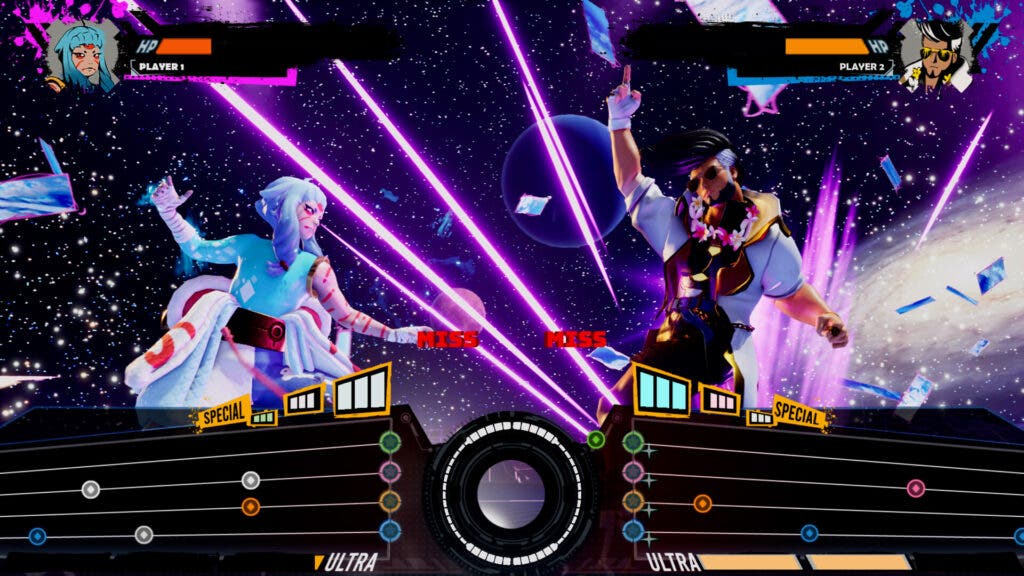
Despite its struggles, I did love God of Rock’s charm. Its roster is a colorful mix of characters like the comic artist Edith or the carefree spirit Lyn, both of which were the two I completed the game with. I enjoyed some of the unique interactions during the arcade intros and the banter between characters before the matches began. The game’s stage designs were pretty to look at, too, at least during the start and end of rounds. I don’t think God of Rock will hold anyone’s attention, which is sad because I feel like something is here. It’s just that the implementation was not executed well. I struggled to want to play when I’m normally itching to repeat songs in a standard rhythm game. It’s clear Modus Games put a lot of love into God of Rock, so it hurts me that I did not enjoy my time with this game. I hope some changes can come down the pipeline to fix some of these issues, specifically the UI button icons.
A PlayStation 4 code was provided in advance by the publisher for review purposes
